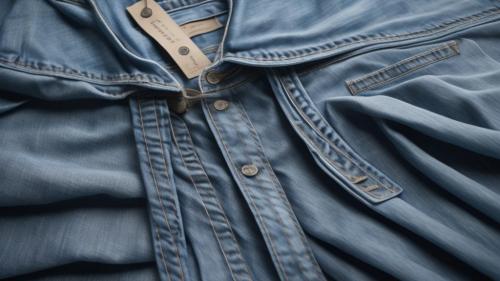The Eco-Friendly Denim Movement: Examining Sustainable Practices in Fashion

Over the past decade, sustainable fashion has transitioned from a fringe movement to an industry-wide mandate. One area of particular focus has been denim, a staple in wardrobes worldwide but a notorious water-guzzler and polluter in its production process. Signs are positive that change is coming, offering hope for a greener future in denim wear.
The fashion industry has long been on an unsustainable path, consuming vast amounts of natural resources and producing copious amounts of waste. Denim, a universal favorite, is notoriously water-intensive. From cultivation of cotton to dyeing and washing the finished product, a single pair of jeans can require an astonishing 2,000 gallons of water.
New innovative strategies are being deployed to combat this issue. Companies big and small are trying to transform every step of the denim-making process, from cotton farming and dyeing to distribution and recycling. For instance, sustainable denim brands are now opting to use organic cotton which requires less water and supports healthier soil due to reduced chemical usage. Furthermore, many brands are integrating cutting-edge technology to mitigate the impact of denim production. For example, using laser technology for distressing or digital printing for patterning can drastically reduce the water requirement. Alternative natural and biodegradable dyes are also gaining popularity.
Another important step is the improvement of denim recycling and upcycling. It caters to both dealing with post-consumer waste and reducing raw material usage. Brands are encouraging consumers to donate their old jeans for recycling, incentivizing them with discounts and other perks. The promotion of conscious consumerism plays a crucial role as well. Customers are encouraged to buy less and opt for quality over quantity. Brands are becoming more transparent, showing customers how their clothes are made to give them an informed choice.
Thankfully, these efforts are not going in vain. The eco-friendly denim movement is gaining significant traction, with a growing number of consumers prioritizing sustainable brands over traditional ones. A move from 'fast fashion' to 'slow fashion' seems imminent but will be truly achieved only when sustainable practices become the norm rather than the exception.
While it's heartening to see the industry take giant strides towards sustainability, it's important to remember that there's still a long way to go. Innovation, investment, and informed consumers are the need of the hour to ensure that the denim industry - and the wider fashion world - can continue to provide personal expression and style without sacrificing our planet.
The fashion industry has long been on an unsustainable path, consuming vast amounts of natural resources and producing copious amounts of waste. Denim, a universal favorite, is notoriously water-intensive. From cultivation of cotton to dyeing and washing the finished product, a single pair of jeans can require an astonishing 2,000 gallons of water.
New innovative strategies are being deployed to combat this issue. Companies big and small are trying to transform every step of the denim-making process, from cotton farming and dyeing to distribution and recycling. For instance, sustainable denim brands are now opting to use organic cotton which requires less water and supports healthier soil due to reduced chemical usage. Furthermore, many brands are integrating cutting-edge technology to mitigate the impact of denim production. For example, using laser technology for distressing or digital printing for patterning can drastically reduce the water requirement. Alternative natural and biodegradable dyes are also gaining popularity.
Another important step is the improvement of denim recycling and upcycling. It caters to both dealing with post-consumer waste and reducing raw material usage. Brands are encouraging consumers to donate their old jeans for recycling, incentivizing them with discounts and other perks. The promotion of conscious consumerism plays a crucial role as well. Customers are encouraged to buy less and opt for quality over quantity. Brands are becoming more transparent, showing customers how their clothes are made to give them an informed choice.
Thankfully, these efforts are not going in vain. The eco-friendly denim movement is gaining significant traction, with a growing number of consumers prioritizing sustainable brands over traditional ones. A move from 'fast fashion' to 'slow fashion' seems imminent but will be truly achieved only when sustainable practices become the norm rather than the exception.
While it's heartening to see the industry take giant strides towards sustainability, it's important to remember that there's still a long way to go. Innovation, investment, and informed consumers are the need of the hour to ensure that the denim industry - and the wider fashion world - can continue to provide personal expression and style without sacrificing our planet.